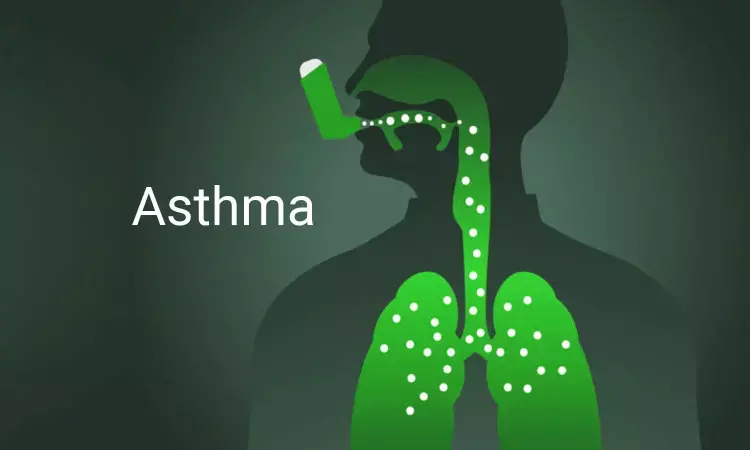- Home
- Medical news & Guidelines
- Anesthesiology
- Cardiology and CTVS
- Critical Care
- Dentistry
- Dermatology
- Diabetes and Endocrinology
- ENT
- Gastroenterology
- Medicine
- Nephrology
- Neurology
- Obstretics-Gynaecology
- Oncology
- Ophthalmology
- Orthopaedics
- Pediatrics-Neonatology
- Psychiatry
- Pulmonology
- Radiology
- Surgery
- Urology
- Laboratory Medicine
- Diet
- Nursing
- Paramedical
- Physiotherapy
- Health news
- Fact Check
- Bone Health Fact Check
- Brain Health Fact Check
- Cancer Related Fact Check
- Child Care Fact Check
- Dental and oral health fact check
- Diabetes and metabolic health fact check
- Diet and Nutrition Fact Check
- Eye and ENT Care Fact Check
- Fitness fact check
- Gut health fact check
- Heart health fact check
- Kidney health fact check
- Medical education fact check
- Men's health fact check
- Respiratory fact check
- Skin and hair care fact check
- Vaccine and Immunization fact check
- Women's health fact check
- AYUSH
- State News
- Andaman and Nicobar Islands
- Andhra Pradesh
- Arunachal Pradesh
- Assam
- Bihar
- Chandigarh
- Chattisgarh
- Dadra and Nagar Haveli
- Daman and Diu
- Delhi
- Goa
- Gujarat
- Haryana
- Himachal Pradesh
- Jammu & Kashmir
- Jharkhand
- Karnataka
- Kerala
- Ladakh
- Lakshadweep
- Madhya Pradesh
- Maharashtra
- Manipur
- Meghalaya
- Mizoram
- Nagaland
- Odisha
- Puducherry
- Punjab
- Rajasthan
- Sikkim
- Tamil Nadu
- Telangana
- Tripura
- Uttar Pradesh
- Uttrakhand
- West Bengal
- Medical Education
- Industry
Keto diet may be good for asthma patients

London, April 13 (IANS) Suffering from asthma? A special diet might help as researchers have found that popular ketogenic diet may reduce inflammation of the respiratory tract.
According to the study, published in the journal Immunity, mice that were switched to a so-called ketogenic diet showed significantly reduced inflammation of the respiratory tract.
Asthma patients react even to low concentrations of some allergens with severe inflammation of the bronchi. This is also accompanied by increased mucus production, which makes breathing even more difficult, the researchers said.
A central role here is played by cells of the innate immune system, which were only discovered a few years ago and are called Innate Lymphoid Cells (ILC). They perform an important protective function in the lungs by regenerating damaged mucous membranes. For this purpose, they produce inflammatory messengers from the group of cytokines, which stimulate the division of the mucosal cells and promote mucus production.
This mechanism is normally very useful: It allows the body to quickly repair damage caused by pathogens or harmful substances. The mucus then transports the pathogens out of the bronchial tubes and protects the respiratory tract against re-infection.
"With asthma, however, the inflammatory reaction is much stronger and longer than normal. The consequences are extreme breathing difficulties, which can even be life-threatening," said study researcher Christoph Wilhelm from the University of Bonn in Germany.
The ILCs multiply rapidly during this process and produce large amounts of proinflammatory cytokines. Scientists hope that if their division could be slowed down, it may be possible to bring the excessive reaction under control. In fact, the results now published point in exactly this direction.
"We have investigated which metabolic processes are active in the ILCs when they switch to reproduction mode. Then we tried to block these metabolic pathways and thereby reduce the speed at which the cells divide," explained said study researcher Fotios Karagiannis.
Some metabolic pathways were in fact significantly more active in dividing ILCs. They primarily ensure that the cells are supplied with energy and with the building blocks they require for reproduction. The latter include, for example, fatty acids that are needed to make the cell membrane. This forms a thin skin with which cells separate themselves from their surroundings.
"Activated ILCs, therefore, absorb fatty acids from their environment and store them in their interior in small droplets for a short time, before they utilise them for energy or building membranes," explained Karagiannis.
But what happens if cells are forced to use these fatty acids elsewhere? To answer this question, the researchers put asthmatic mice on a diet that contained mainly fats, but hardly any carbohydrates or proteins.
With this diet, also known as a ketogenic diet, the cell metabolism changes: The cells now get the energy they need from burning fat. However, this means that they lack fatty acids, which they need for the formation of new membranes during cell division."
As a consequence, the division activity of the ILCs in the rodents fed a special diet decreased - dramatically: Normally, contact with allergens increases the number of ILCs in the bronchi fourfold," said Wilhelm. "In our experimental animals, however, it remained almost unchanged. Both mucus production and other asthma symptoms decreased accordingly," Wilhelm added.
--IANS
bu/sdr/
Dr Kamal Kant Kohli-MBBS, DTCD- a chest specialist with more than 30 years of practice and a flair for writing clinical articles, Dr Kamal Kant Kohli joined Medical Dialogues as a Chief Editor of Medical News. Besides writing articles, as an editor, he proofreads and verifies all the medical content published on Medical Dialogues including those coming from journals, studies,medical conferences,guidelines etc. Email: drkohli@medicaldialogues.in. Contact no. 011-43720751


